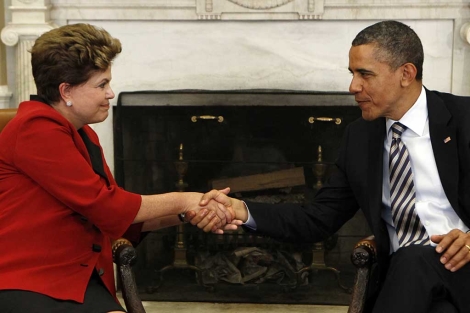The US Presidential Election: A Competition of Strategies for Economic Recovery
(Japan) on 13 April 2012
by (link to original)
Romney’s battle against Obama can now proceed at full speed. Its main focus will be on strategies for the country’s economic revival.
While the economy has recovered, the future outlook is unclear. It is unlikely that Congress will approve the proposed fiscal consolidation measures aimed at reducing the massive budget deficit. There needs to be a wider policy debate that takes current inconvenient circumstances into consideration.
Obama aims to reconcile current economic stimulation measures and mid-range financial reforms. He has plans to improve the employment situation through investing in education and public utilities, and intends to maintain and expand the social security and medical insurance systems. He further set out to reduce military spending and to increase taxes for the rich.
However, with the House of Representatives currently ruled by the Republican Party, it does not appear likely that these policies will be implemented.
Romney is a wealthy businessman, who has had great success as the manager of an investment firm. His knowledge of economics is his strong point; on this basis he criticizes Obama, stating that “we need to have a president who understands how this economy works […].”*
Romney advocates small government. His plans include the reduction of government spending on areas such as social security and boosting the economy through deregulation of the private sector. He wants to cut corporate and income taxes and has no intentions to reduce the defense budget.
The question of whether or not the U.S. economy will recover greatly influences the world economy as a whole. One main concern is the rising oil price, a result of the current Iran situation. Issues such as the European financial crisis or relations with China, one of America’s largest trade partners, are also variables that can affect the economy.
Diplomacy and security policy are also closely tied to economic policy. Especially against China, Romney has quickly taken a hard-line stance, claiming that if he becomes president, he will label China a currency manipulator. In order to avoid criticism for displaying a weak attitude, President Obama has also decided to devise new ways of cracking down on China’s unfair trade practices.
The tense Sino-American relationship significantly affects international politics. Developments between the two countries will play a much more essential part in relation to issues such as North Korea and Iran.
In the light of these views, we must keep an eye on the course of the two contenders’ verbal disputes.
*Editor's note: The original quotation, accurately translated, could not be verified.

